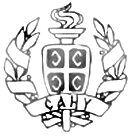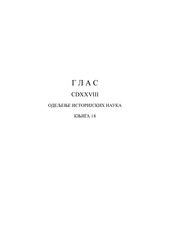Приказ основних података о документу
Борба либерала за превласт у Друштву српске словесности и Матици српској (1864–1866)
Struggle of liberals for the supremacy at the Society of Serbian Letters and Matica srpska (1864–1866)
| dc.creator | Бешлин, Бранко | |
| dc.date.accessioned | 2020-09-02T00:33:51Z | |
| dc.date.available | 2021-01-01 | |
| dc.date.issued | 2018 | |
| dc.identifier.issn | 0351-4765 | |
| dc.identifier.uri | https://dais.sanu.ac.rs/123456789/9066 | |
| dc.description.abstract | The proponents of parliamentarian rule and civil freedoms began to be publicly active in Serbia, in a lively and organised manner, at the St. Andrew’s Day Assembly of 1858. Their activity among the Serbs in southern Hungary became evident after the Austrian defeats in the war against Italy in 1859 and the Annunciation Assembly of 1861. As they established personal links while still being students, they soon became the leaders of the opposition movement which fought absolutism in Serbia and Austria, while at the same time working on national liberation. The conditions for a parliamentary political competition did not exist in either of these two countries. This is why the liberals from Serbia, members of Miletić’s People’s Party, aimed to wield their influence indirectly, in the cultural-educational field. In 1863 and 1864, they tried to assume leadership in the most important cultural-educational institutions: in Belgrade – in the Society of Serbian Letters and the Higher School, and in Novi Sad – in Matica srpska and the Serbian Reading Room. A larger number of liberals found themselves in the early 1860s in the Society of Serbian Letters established in 1841 (a precursor of today’s Serbian Academy of Sciences and Arts) and the Lyceum (a precursor of the Higher School, i.e. Belgrade University). At the meeting of the Society of Serbian Letters held on 26 January 1864, eminent liberal Vladimir Jovanović proposed Guiuseppe Garibaldi, Ferenc Deák and Richard Cobden for honorary members, and Aleksandr Herzen, Nikolay Chernishevsky and Saint-Marc Girardin for corresponding members (Jovanović met the representatives of Young Italy, English liberals and radicals, Hungarian nationalists and Russian revolutionaries in autumn 1862 and spring 1863 during his travel to London). Prince Mihailo immediately abolished the Society of Serbian Letters and Jovanović emigrated – first to Hungary, in Novi Sad. His fellow thinkers headed by Svetozar Miletić, who was his personal friend, already had the main say there. In spring 1864, Matica srpska was transferred from Pest to Novi Sad – it was the oldest Serbian literary association with great foundations and the richest organisation of non-Hungarian peoples in Hungary. Liberals prevailed in Matica and had at their disposal the means for printing magazines and books. Owing to their initiative, the first standing theatre among the Serbs began to operate in Novi Sad, while in 1866 the United Serbian Youth was founded upon the model of Young Italy. | en |
| dc.language.iso | sr | sr |
| dc.publisher | Београд : Српска академија наука и уметности | sr |
| dc.rights | embargoedAccess | sr |
| dc.source | Глас САНУ | sr |
| dc.subject | Vladimir Jovanović | sr |
| dc.subject | Sava Tekelija | sr |
| dc.subject | Svetozar Miletić | sr |
| dc.subject | the Society of Serbian Letters | sr |
| dc.subject | Matica srpska | sr |
| dc.subject | Liberals | sr |
| dc.title | Борба либерала за превласт у Друштву српске словесности и Матици српској (1864–1866) | sr |
| dc.title | Struggle of liberals for the supremacy at the Society of Serbian Letters and Matica srpska (1864–1866) | en |
| dc.type | article | sr |
| dc.rights.license | ARR | sr |
| dcterms.abstract | Bešlin, Branko; Borba liberala za prevlast u Društvu srpske slovesnosti i Matici srpskoj (1864–1866); | |
| dc.citation.spage | 281 | |
| dc.citation.epage | 299 | |
| dc.citation.volume | 428 | |
| dc.description.other | Глас / Српска академија наука и уметности ; 428. Одељење историјских наука ; књ.18 | sr |
| dc.identifier.cobiss | 1548167402 | |
| dc.type.version | publishedVersion | sr |
| dc.identifier.fulltext | https://dais.sanu.ac.rs/bitstream/id/38496/bitstream_38496.pdf | |
| dc.identifier.rcub | https://hdl.handle.net/21.15107/rcub_dais_9066 |

